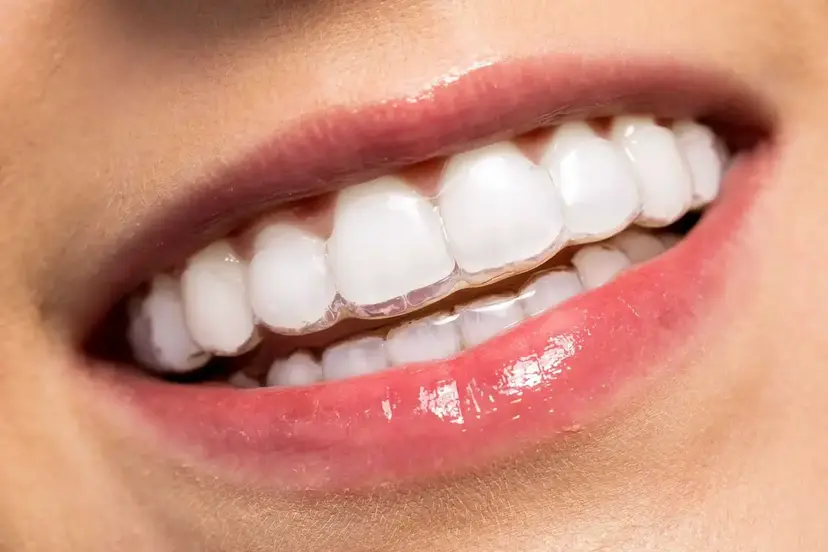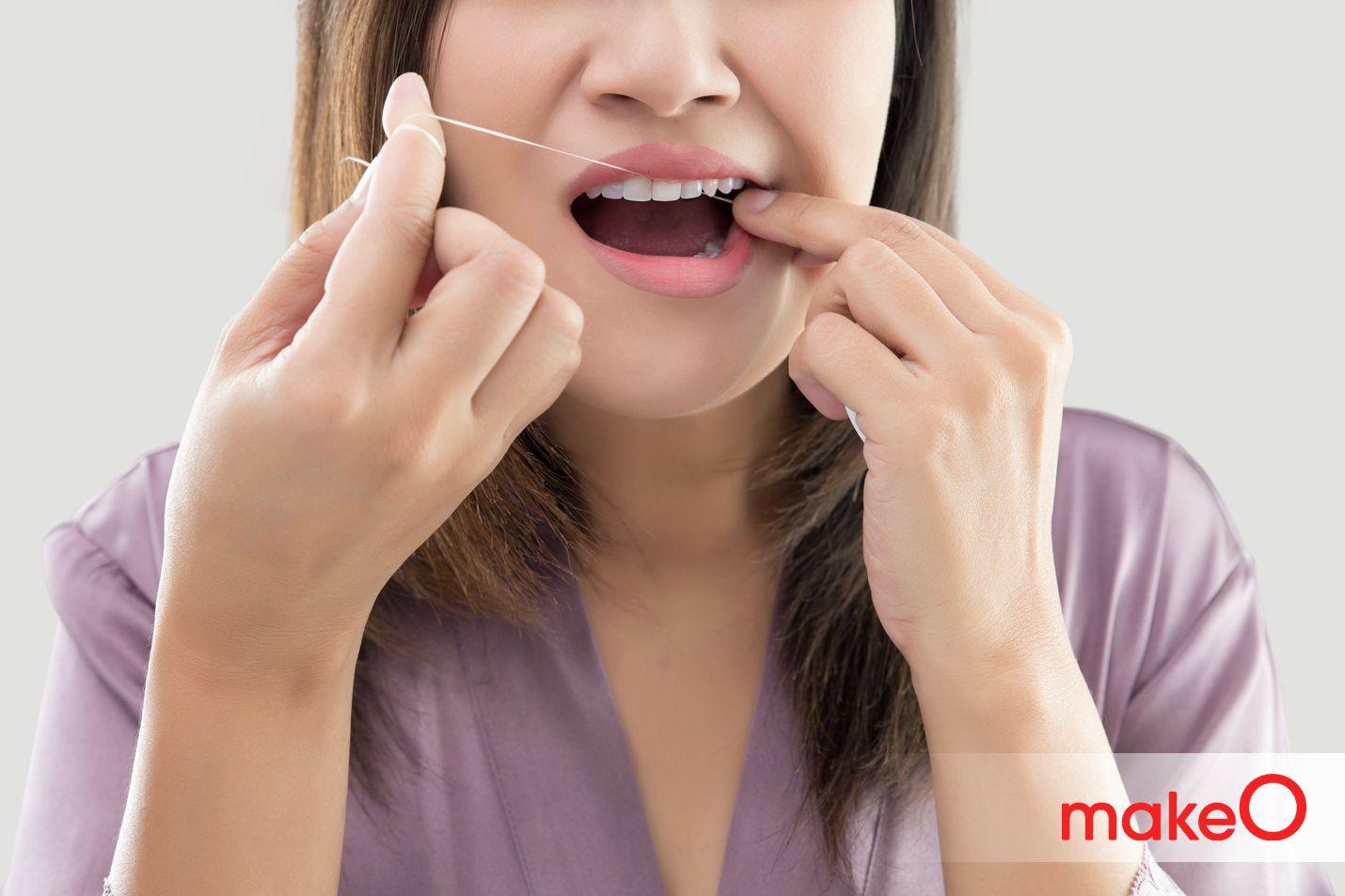MakeO blog
Maintaining optimum oral hygiene is the best way to keep your teeth clean and strong for a long time. But oral hygiene habits go way beyond brushing your teeth twice a day! Brushing is the primary way to clean your teeth daily but even toothbrushes with the most flexible bristles cannot reach every corner of your mouth. This is where flossing becomes essential. Floss can easily remove food particles between teeth gaps and plaque on the teeth to keep them healthy and prevent any oral health issues. In this article, we will discuss the importance of flossing and how it affects your teeth if you don’t floss regularly
Importance of flossing: Benefits of flossing daily
Typically floss or dental floss is a thin cord used to clean teeth gaps, biofilm and more. There are several benefits of flossing such as
- Effectively removes food particles or debris from areas that the toothbrushes don’t reach
- Fights bad breath-causing bacteria
- Clears out plaque and tartar (the unrelenting yellow biofilm on your teeth that doesn't go away)
- Prevents tartar buildup, teeth discolouration, cavities and gingivitis
- Also reduces the risk of redness, puffiness and other gum-related issues.
What happens if you don't floss regularly?
Now that you understand the kind of benefits you can reap from flossing, here’s what can happen if you don’t floss regularly.
1. Cavities and tooth decay
When you don’t floss regularly, you will surely leave behind some food particles and debris in your teeth. Along with other bacteria, these left-behind food particles can turn into a yellow biofilm, also known as plaque. When plaque is not dealt with by flossing, it can harden and become tartar. Once your teeth have tartar, they run a huge risk of getting cavities and tooth decay. This happens because as cavities develop, they create holes in the enamel which can cause infection, pain and decay if left untreated.
To avoid plaque, tartar, cavities, infections and tooth decay, it is very important to floss at least once a day and entirely clean the gumline.
2. Gum disease
Without flossing, when plaque build-up remains untouched on the gumline, it can cause inflammation and infection. This typically leads to bleeding and swollen gums, also known as gingivitis. If not treated, gingivitis can escalate into periodontitis which can directly lead to tooth loss and other damage too!
The only way to ensure that your gums are healthy and safe is by following brushing with flossing. Regular flossing using smart flossing techniques can remove trapped debris, get rid of plaque and safeguard your gum health.
3. Bad breath
While bad breath cannot be seen by the naked eye, it is extremely off-putting and many even find it repulsive. Mouthwashes and mouth fresheners can only temporarily work in keeping bad breath away, but if you face constant bad breath, then it may be because you don’t floss!
The food we eat often gets stuck in gaps in our teeth. They later react with bacteria and enzymes and emit foul-smelling odours which results in bad breath. Flossing is an effective way of cleaning out food debris which then helps your mouth stay fresh and clean!
About makeO toothsi's smart water flosser
Looking for the right floss for you? We’ve all seen traditional dental floss, but makeO toothsi’s floss x smart water flosser can be your new secret weapon for oral hygiene. It not only removes plaque and improves gum health, but it is also travel-friendly and rechargeable, making it perfect for some easy, quick and mess-free teeth cleaning! Featuring 4 modes: soft, strong, pulse, and point motion, this water flosser is a modern way of keeping your smile dazzling and your gums healthy.
To conclude, flossing as an oral hygiene habit is truly beneficial to maintain your oral hygiene. It not only prevents several oral health issues like cavities, bad breath, tooth decay, gingivitis and more but skipping flossing as a step in your oral care routine could have negative effects on your pearly whites. To know more about oral care and oral care products, visit makeO toothsi today!
FAQs
Is it OK to not floss your teeth?
Flossing is an important oral care habit that everyone should take up. Brushing your teeth twice a day is not enough to clear the food debris and germs in your teeth. Flossing helps remove this from gaps and corners and ensures that your teeth are free of food particles and plaque!
What happens if you haven't flossed in years?
If you haven't flossed in years, you will have plaque or tartar buildup which means that your teeth will be discoloured and coated in a thick layer of dark yellowish film. You will additionally also be at the risk of tooth decay and cavities!
What happens if you don't floss for one day?
If you skip flossing for a day, you might risk having a small amount of plaque buildup on your teeth. Your teeth might also have some remaining food particles in them!
Can mouthwash replace flossing?
No, flossing and mouthwash are crucial but individual parts of a good oral care routine. Dental floss helps get rid of any food particles and mouthwash helps eliminate any remaining germs and bacteria in the mouth. So, in short, mouthwash cannot replace flossing!
related categories
Related articles

Types of Braces: Removable vs Fixed Braces, Which is Right For You?

This Diwali, Smile Bright With makeO Teeth Whitening Kit

Dr. Pravin Shetty: Pioneer in Lingual Orthodontics & Innovative Smile Solutions
How do I Know I’m the Right Candidate for makeO toothsi Teeth Aligners?

